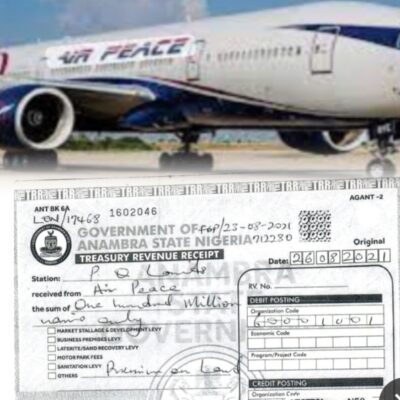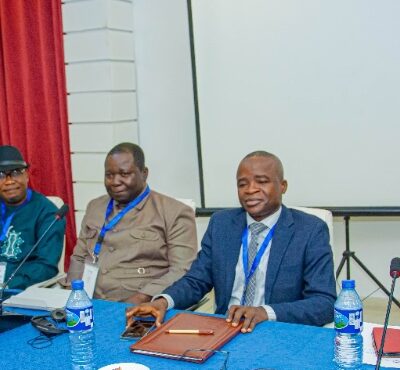
BY OLAPEJU OLUBI
Cross River State is positioning for aviation infrastructure expansion, with plans to establish additional airports to fully unlock its tourism and economic potential.
According to Capt. Eno Inah (retd), Commissioner for Aviation, the state is not only posturing to handle the development of multiple airports but also confident that such projects would not become financial burdens or liabilities to be transferred to the Federal Government.
Speaking in Lagos on Wednesday, Inah emphasized that Cross River’s strategic geographic location, nestled at the edge of the Gulf of Guinea, positioned it as a natural gateway to both domestic and regional air traffic.
“Outside the coastline, we are at the depth of the Gulf of Guinea — that’s São Tomé and Príncipe, there’s Equatorial Guinea and others,” Inah said. “If you can’t land in Calabar, you can land in Obudu airport.”
He argued that the current aviation infrastructure — particularly the Margaret Ekpo International Airport in Calabar — is inadequate to meet the demands of the state’s growing economic and tourism activities.
“The Margaret Ekpo International Airport is constrained completely because there is no space for expansion. It’s inside the community and the neighbourhood is very close. Urban development has eaten into the place, with lots of encroachment,” he said.
“Big aircraft can’t come to Calabar airport because of its small runway. And more so, it’s a Federal Government airport.”
Inah disclosed that construction work on the Obudu Cargo Airport is progressing well and the facility is expected to be launched before the end of the year.
He further revealed that plans are in motion for a third airport — likely to be sited in Calabar — to serve as a dedicated commercial aviation hub.
“We can even add a third airport to the plan. If you are a regular traveller to Europe, you’ll know that there are airports in close proximity. Some of them are strictly for maintenance purposes,” he said.
Looking ahead, Inah suggested that the federal-owned Calabar airport may eventually serve official or military use, while the state’s new facilities will cater exclusively to commercial aviation and cargo operations.
He also disclosed that Cross River is on track to launch its own airline.
The State Government expects to receive its Air Transport License (ATL) from the Nigeria Civil Aviation Authority (NCAA) within three months, with the Air Operator’s Certificate (AOC) to follow.
In preparation for the launch, the government has already acquired two CRJ1000 aircraft.
Inah commended Aero Contractors and its CEO, Capt. Ado Sanusi, for faithfully adhering to the terms of their partnership on the operations of Cally Air.
“We are very much at home with the agreement we have with Aero Contractors, and there is no default from either side,” he said.
“Our relationship is very smooth. We don’t have issues with them. We are working hard to be an airline like them. They are setting the standards and raising the bar in the airline sub-sector.”
Beyond passenger services, the state has ambitious plans to develop a Maintenance, Repair and Overhaul (MRO) facility and an aviation training school as part of its broader aviation development strategy.
Inah likened the state’s tourism trajectory to that of South Africa, stressing that Cross River is on a path to becoming one of Africa’s key leisure and business destinations — provided the aviation infrastructure can match the vision.





